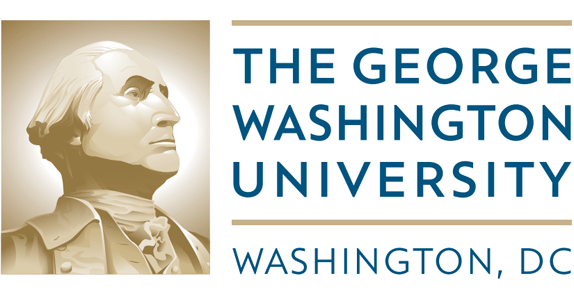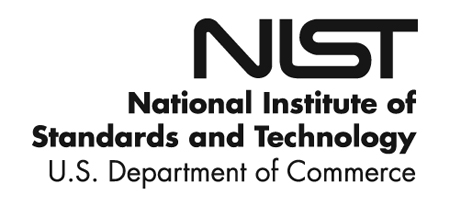Call for PapersDigital and computational solutions are becoming the prevalent means for the generation, communication, processing, storage and curation of mathematical information. Separate communities have developed to investigate and build computer based systems for computer algebra, automated deduction, and mathematical publishing as well as novel user interfaces. While all of these systems excel in their own right, their integration can lead to synergies offering significant added value. The Conference on Intelligent Computer Mathematics (CICM) offers a venue for discussing and developing solutions to the great challenges posed by the integration of these diverse areas. CICM has been held annually as a joint meeting since 2008, co-locating related conferences and workshops to advance work in these subjects. Previous meetings have been held in Birmingham (UK 2008), Grand Bend (Canada 2009), Paris (France 2010), Bertinoro (Italy 2011), Bremen (Germany 2012), Bath (UK 2013), and Coimbra (Portugal 2014). This is a call for papers for CICM 2015, which will be held in Washington, D.C., 13-17 July 2015. The principal tracks of the conference will be:
Publicity chair is Serge Autexier. The local arrangements will be coordinated by the Local Arrangements Chairs, Bruce R. Miller (National Institute of Standards and Technology, USA) and Abdou Youssef (The George Washington University, Washington, D.C.), and the overall programme will be organized by the General Program Chair, Manfred Kerber (U. Birmingham, UK). We will have proceedings of the conference as in previous years with Springer Verlag as a volume in Lecture Notes in Artificial Intelligence (LNAI). As in previous years, it is anticipated that there will be a number co-located workshops, including one to mentor doctoral students giving presentations. Important DatesConference submissions:
Work-in-progress and Doctoral Programme submissions:Submission deadline:
Track Calculemus: Symbolic Computation and Mechanised ReasoningCalculemus is dedicated to the integration of computer algebra systems (CAS) and systems for mechanized reasoning such as interactive proof assistants (PA) and automated theorem provers (ATP). Currently, symbolic computation is divided into several (more or less) independent branches: traditional ones (e.g., computer algebra and mechanized reasoning) as well as emerging ones (on user interfaces, knowledge management, theory exploration, symbolic execution, abstract interpretation, etc.) We wish to bring these developments together in order to facilitate the theory, design, and implementation of integrated systems. These systems should be convenient to use routinely by mathematicians, computer scientists and all others who need computer-supported mathematics in their daily work. All topics in the intersection of computer algebra systems and automated reasoning systems are of interest for Calculemus. These include but are not limited to:
Track DML: Digital Mathematical LibrariesMathematicians dream of a digital archive containing all validated mathematical literature ever published, reviewed, properly linked, and verified. It is estimated that the entire corpus of mathematical knowledge published over the centuries does not exceed 100,000,000 pages, an amount easily manageable by current information technologies. The track objective is to provide a forum for the development of math-aware technologies, standards, algorithms and formats for the fulfilment of the dream of a global digital mathematical library (DML). Computer scientists (D) and librarians of the digital age (L) are especially welcome to join mathematicians (M) and discuss many aspects of DML preparation. Track topics are all topics of mathematical knowledge management and digital libraries applicable in the context of DML building, including the processing of mathematical knowledge expressed in scientific papers in natural languages:
Track MKM: Mathematical Knowledge ManagementMathematical Knowledge Management is an interdisciplinary field of research in the intersection of mathematics, computer science, library science, and scientific publishing. The objective of MKM is to develop new and better ways of managing sophisticated mathematical knowledge, based on innovative technology of computer science, the Internet, and intelligent knowledge processing. MKM is expected to serve mathematicians, scientists, and engineers who produce and use mathematical knowledge; educators and students who teach and learn mathematics; publishers who offer mathematical textbooks and disseminate new mathematical results; and librarians and mathematicians who catalogue and organize mathematical knowledge. The track is concerned with all aspects of mathematical knowledge management. A non-exclusive list of important topics includes:
Track: Systems and DataThe systems and data track provides a forum to publish digital resources whose value cannot be adequately represented by a printed paper alone. It aims at an exchange of ideas between developers and users in any area related to the CICM conferences. Systems can be for example stand-alone; plugins, libraries, or extensions of existing systems; or integrations of existing systems. Data can be for example formalizations; harvests or new processing of existing data; or case studies, test cases, or benchmark suites for systems. In either case, the primary evaluation criteria are the
of the system/data and the
Detailed comments:
Projects and SurveysCICM strongly encourages the submission of project and survey papers. Project papers (max. 4-15 pages, according to the scope and impact of the project) have a broader scope than regular papers (and consequently tend to present results at less depth). Papers on past projects may contain previously published results if their coherent presentation in a single paper provides new value. Papers on current projects may contain envisioned results if these are valuable to shape future research. Project papers can range from:
Presentations of new projects should mention relevant previous work and include a roadmap that outlines concrete steps. All project submissions must have a live project website and should contain links to demos, videos, downloadable systems or downloadable datasets. Submission of descriptions of new projects are encouraged but would typically be classified as work in progress. We especially solicit for papers of long standing projects. Projects will be evaluated within the main tracks and will be published in the main proceedings. Survey papers (max. 15 pages) present a relevant research problem and discuss, compare, or evaluate historical and/or state-of-the-art solutions. Surveys should be as comprehensive and objective as possible. The discussed research may or may not include research by the authors of the survey. For project and survey papers, the PC will judge the merits of the paper on a case-by-case basis. Submission InstructionsElectronic submission is done through EasyChair. All papers should be prepared in LaTeX and formatted according to the requirements of Springer's LNCS series (the corresponding style files can be downloaded from http://www.springer.de/comp/lncs/authors.html). By submitting a paper the authors agree that if it is accepted at least one of the authors will attend the conference to present it. Submissions to the research tracks (Calculemus, DML, MKM) must not exceed 15 pages in the LNCS style and will be reviewed and evaluated with respect to relevance, clarity, quality, originality, and impact. Shorter papers, e.g., for system descriptions, are welcome. Authors will have an opportunity to respond to their papers' reviews before the programme committee makes a decision. System and Data descriptions must not exceed 4 pages in the LNCS style. A project description should be between 4 and 15 pages, depending on the size and impact of the project. Details of the publication are to be determined. We currently plan that the accepted conference submissions from all tracks will be published as a volume in the series Lecture Notes in Artificial Intelligence (LNAI) by Springer. In addition to these formal proceedings, authors are permitted and encouraged to publish the final versions of their papers on arXiv.org. Work-in-progress submissions are intended to provide a forum for the presentation of original work that is not yet in a suitable form for submission as a full paper for a research track or system description. This includes work in progress and emerging trends. Their size is not limited, but we recommend 5-10 pages. The programme committee may offer authors of rejected formal submissions the opportunity to publish their contributions as work-in-progress papers instead. Depending on the number of work-in-progress papers accepted, they will be presented at the conference either as short talks or as posters. The work-in-progress proceedings will be published as a technical report, as well as online with CEUR-WS.org. Doctoral ProgrammeCICM is an excellent opportunity for graduate students to meet established researchers from the areas of computer algebra, automated deduction, and mathematical publishing. The Doctoral Programme provides a dedicated forum for PhD students to present and discuss their ideas, ongoing or planned research, and achieved results in an open atmosphere. It will consist of presentations by the PhD students to get constructive feedback, advice, and suggestions from the research advisory board, researchers, and other PhD students. Each PhD student will be assigned to an experienced researcher from the research advisory board who will act as a mentor and who will provide detailed feedback and advice on their intended and ongoing research. Students at any stage of their PhD can apply and should submit the following documents through EasyChair: A two-page abstract of the thesis describing the research questions, research plans, completed and remaining research, evaluation plans and publication plans; A two-page CV that includes background information (name, university, supervisor), education (degree sought, year/status of degree, previous degrees), employments, relevant research experience (publications, presentations, attended conferences or workshops, etc.) Submission Deadline: 4 May 2015 Programme Committee (some additions still possible)General chair
Calculemus track
DML track
MKM track
Systems and Data track
|
8th Conference on Intelligent Computer Mathematics
CICM 2015
July 13-17, 2015
Washington DC, USA
You must enable JavaScript to use this site
-
News
- Please participate in the online survey
- Work-in-Progress informal proceedings online
- Springer proceedings available online
- Travel information available


